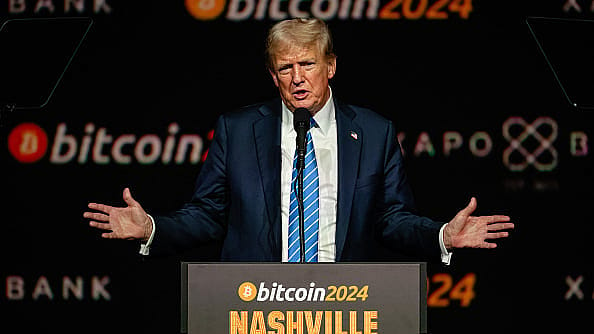Trump win beneficial for India: Nomura
ADVERTISEMENT

A win for Republican candidate Donald Trump in the forthcoming U.S. elections is to India's advantage, says market research firm Nomura. A possible friction in bilateral trade due to Trump’s policies could be outweighed by supply chain benefits and India will be a relative beneficiary due to its domestic demand-driven growth model and benefits from lower commodity prices, supply chain shifts and foreign policy, the latest Anchor Report of Nomura says.
Nomura analysts Sonal Varma and Aurodeep Nandi point out that the deep economic and strategic interests shared by India and U.S. are unlikely to be compromised, irrespective of the election outcome. They also note that the U.S. sees India as a strategic counterweight to China on foreign policy. “India is a large, domestic demand-driven economy, so the economic fallout of weaker U.S. economic growth should be limited. Any frictions on trade and immigration will likely be more than offset by the gains accruing to India from the ongoing supply chain shifts, as de-risking from China gathers momentum under a Trump presidency," the report says.
Nomura analysts see the country’s GDP growth to be affected only marginally (about 0.1 percentage points lower), with neutral impact on inflation. “We also believe that India is well-prepared to handle any volatility stemming from U.S. policies, amid its large FX reserves buffer, stable growth-moderate inflation mix, high real rates, fiscal discipline and a continued focus on reforms," the analysts note.
January 2026
Netflix, which has been in India for a decade, has successfully struck a balance between high-class premium content and pricing that attracts a range of customers. Find out how the U.S. streaming giant evolved in India, plus an exclusive interview with CEO Ted Sarandos. Also read about the Best Investments for 2026, and how rising growth and easing inflation will come in handy for finance minister Nirmala Sitharaman as she prepares Budget 2026.
On the impact on bilateral trade, Nomura sees two sources of trade friction under the Trump presidency. “India runs a trade surplus with the U.S., which might face scrutiny under Trump 2.0. India’s merchandise trade surplus with the U.S. moderated under Trump 1.0, but since the pandemic and under the Biden administration, it has surged again," it notes, adding that under Trump 2.0, several issues raised by the U.S. Trade Representative in the 2023 ‘Foreign Trade Barriers’ report, including India’s high tariffs on agricultural goods, along with a host of non-tariff barriers like import restrictions, licensing requirements, price controls, subsidisation of agriculture, public procurement norms and inadequate IP protection could be taken up. Nomura analysts also feel that the Trump administration may look to take punitive steps against trading partners deemed to be artificially weakening their currencies. However, these short-term disruptions are likely to be more than offset by the medium-term benefit to India from supply chain relocation, as de-risking from China strategy gains further momentum under Trump 2.0, the report says. “Our analysis shows that India remains at the forefront of the global value chains shifting away from China, owing to its large domestic consumer market, reforms momentum and the policy focus on domestic manufacturing. We also find that unlike ASEAN economies, where investments are led by Chinese firms relocating their production, most of the companies relocating to India are from the U.S., Europe and developed Asia. A more diversified funding source suggests that India is unlikely to fall under the direct line of fire, if U.S. takes retaliatory action against ‘third countries’ that are being used by China to bypass tariffs," the analysts state.
U.S. accounts for about 18% of India’s merchandise exports, and the biggest export items include electronics, pearls & precious stones, pharmaceuticals, nuclear reactors, petroleum products, and to a lesser extent, iron & steel, autos and textiles. India is also one of the world’s top services exporters, particularly of IT and professional services and the U.S. is an important customer of India’s services sector.
